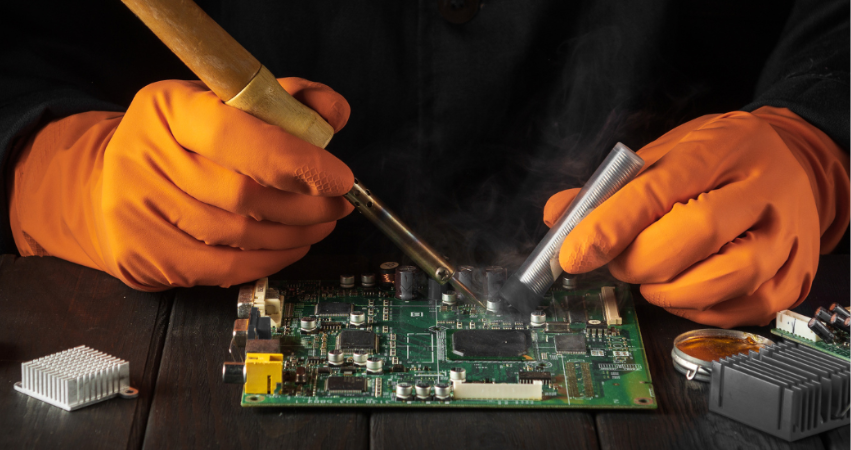The Future of Hardware Engineering: How Innovation Is Driving Nexxora Technologies
In today’s rapidly evolving digital world, hardware engineering is no longer just about building devices—it’s about creating intelligent, efficient, and future-ready systems that can support the next generation of innovation. As companies accelerate their digital transformation efforts, modern hardware must deliver high performance, low energy consumption, advanced connectivity, and built-in intelligence.
That’s where forward-thinking engineering teams like NexXora Technology are redefining the landscape.
1. Modular Hardware Design: Building for Speed and Scalability
Modularity has emerged as one of the most valuable trends in modern hardware engineering. Instead of designing fixed, rigid systems, engineers now develop interchangeable and reusable components that shorten development cycles and reduce long-term costs.
Benefits of modular hardware include:
-
Faster product development
-
Simplified maintenance
-
Flexibility to scale system capabilities
-
Reduced waste and improved sustainability
This approach allows businesses to upgrade components without replacing entire systems—making modular design a cornerstone of modern innovation.
2. Intelligent Embedded Systems Powered by Edge AI
AI integration is no longer limited to cloud platforms. Today’s hardware increasingly incorporates edge AI acceleration, enabling devices to process information locally and respond in real time.
Edge-enabled embedded systems help businesses:
-
Reduce latency and improve responsiveness
-
Improve data privacy by minimizing cloud reliance
-
Lower bandwidth consumption
-
Deliver smarter automation and analytics
From IoT ecosystems to autonomous machinery, edge computing is transforming how industries operate, bringing intelligence directly to the hardware layer.
3. Sustainable Hardware Engineering for a Greener Future
Environmental responsibility is now a priority for engineering teams worldwide. Modern hardware development focuses on energy-efficient components, optimized PCBs, low-power chipsets, and sustainable materials.
Key sustainability strategies include:
-
Power-efficient chipset selection
-
Improved thermal management
-
Lightweight, recyclable materials
-
Design techniques that reduce energy waste
As regulations tighten and customers demand greener technology, sustainable hardware is no longer optional—it is a competitive advantage.
4. Next-Generation Connectivity: 5G, Wi-Fi 6, and Beyond
Ultra-fast wireless standards are redefining how devices communicate and share data. Hardware platforms that support the latest connectivity technologies enable seamless, responsive, and large-scale deployments.
This includes:
-
5G for low-latency, high-speed communication
-
Wi-Fi 6/6E for dense-device environments
-
Advanced RF architectures for stable and secure communication
For industries such as smart manufacturing, autonomous transport, and smart cities, next-gen connectivity is essential.
5. Hardware-Level Security: Protecting Systems at the Core
Cybersecurity threats are evolving faster than ever, and protecting devices at the hardware level is now critical.
Modern secure hardware includes:
-
Trusted Execution Environments (TEEs)
-
Secure boot protection
-
Hardware-based encryption
-
Tamper-resistant circuits and packaging
By embedding security directly into the device architecture, organizations can prevent breaches before they occur.
6. Rapid Prototyping: Accelerating Innovation Cycles
Time-to-market is a decisive factor in today’s competitive landscape. Tools such as FPGAs, advanced simulation software, modular evaluation kits, and rapid PCB fabrication allow engineers to prototype, test, and refine concepts faster than ever.
Rapid prototyping helps companies:
-
Validate ideas early
-
Reduce costly redesigns
-
Accelerate product launch timelines
This agile development approach empowers businesses to innovate with confidence.
Conclusion: Engineering Systems Built for the Future
The future of hardware engineering is defined by intelligence, efficiency, sustainability, and security. As industries demand more advanced and adaptable technologies, engineering innovators are reshaping how hardware is conceived and delivered.
To explore cutting-edge hardware solutions designed for modern challenges, visit NexXora Technology’s Hardware Engineering Services.
nexxora tech

